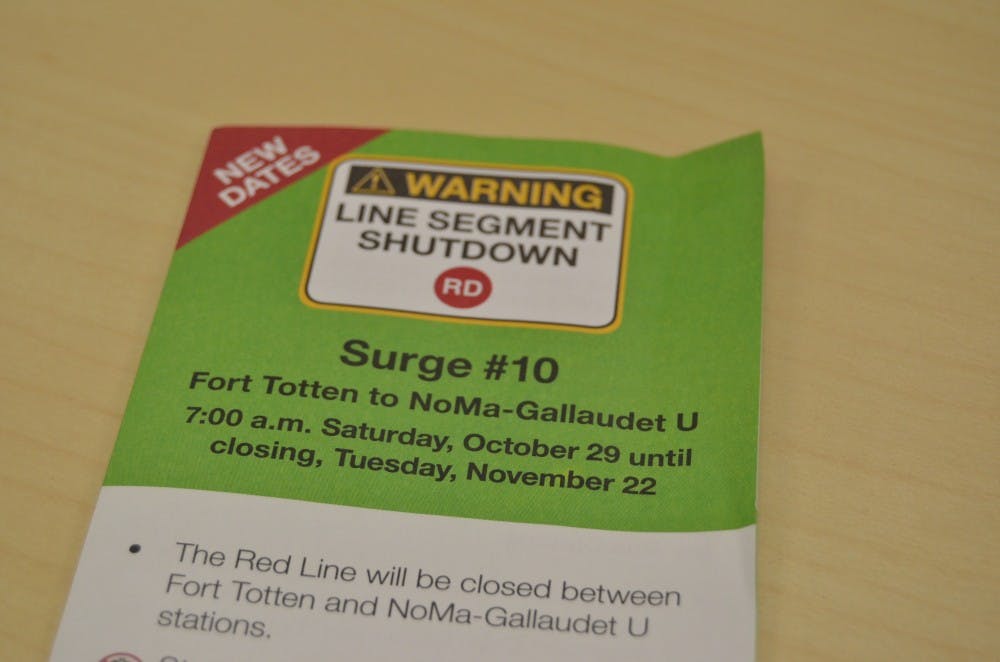Metro began its latest surge of SafeTrack on Saturday, this time on the Red Line, which is predicted to affect travel along the route until the project ends on Nov. 22.
SafeTrack, which began this summer and will continue through next spring, includes several short term “surge projects” of construction that disrupt commutes on all six metrorail lines. The Red Line will be closed between the Fort Totten and the NoMa-Gallaudet U Stations. Additionally, Metrobus stations Brookland-CUA and Rhode Island Ave will be closed. Metro advises riders to “expect large crowds, fewer trains, and major delays” along the Red Line in its informational pamphlet.
The new construction work begins as Metro asks riders to vote for one of four new, temporary schedules for operating and maintenance hours
Currently, the metro is open from 5 a.m. to 12 a.m. on weekdays, and 7 a.m. to 12 a.m. on weekends. The proposed changes to the system’s operating hours are meant to provide the time needed for “improved maintenance and inspection programs,” according to Metro’s website and press release. Additionally, Metro plans to increase track maintenance hours from 33 in 2016 to 41 next year as a part of these changes.
Proposal one suggests having a 5 a.m.to midnight operating hour period on Mondays through Thursdays, while Saturday and Sunday open at 7 a.m. and close at midnight and 10 p.m., respectively.
Proposal two is the closest to the current Metro times, suggesting an 11:30 p.m. closing time rather than one at midnight midnight.
Proposal three suggests a 1 a.m. closing time for Fridays and Saturdays, weekday hours from 5 a.m. to 11:30 p.m, and Sunday hours from 7 a.m. to 11:30 p.m.
Proposal four suggests that Sunday hours begin at noon. It compensates for this late start time by increasing hours on Friday and Saturday. Friday hours would be 5 a.m. to 3 a.m., whereas Saturday hours would be 9 a.m. to 3 a.m.
Throughout the duration of SafeTrack and the additional maintenance hours, Metro is offering supplemental bus service that will “provide customers with travel alternatives”, according to its website. The company is also looking to partner with private organizations that provide late-night transportation options.
Jesy Werner, a freshman in the College of Arts and Sciences, said she has been worried about the safety of the metro over the last few months but is also frustrated by the disruptions many students face when traveling by rail.
“Leaving the metro the way it is isn’t helpful, and they need to change it,” says Werner. “At the same time, it’s at the expense of the thousands of people that take the metro every day.”





